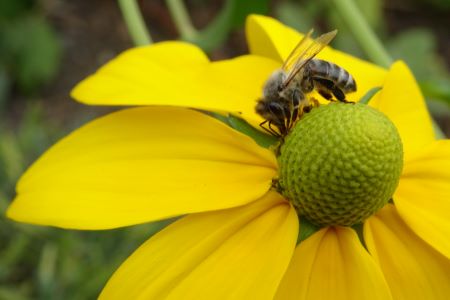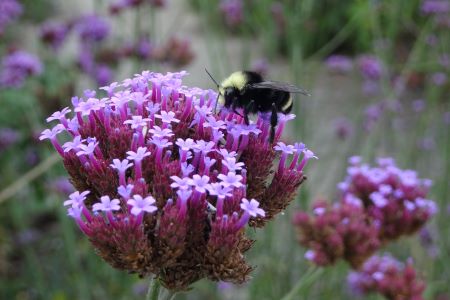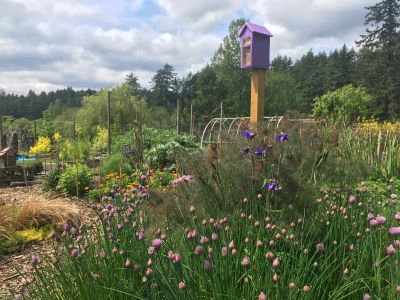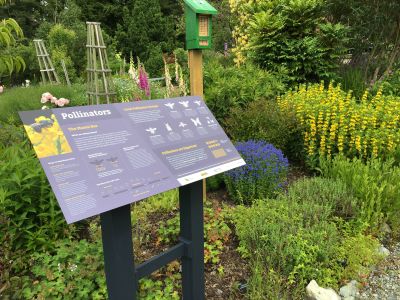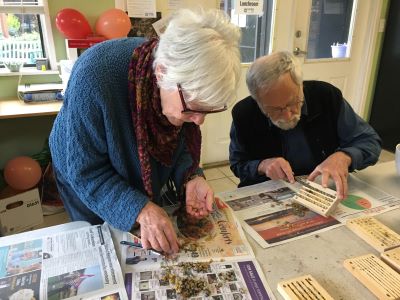Pollinators at the Gardens
Pollinators are an important part of garden ecology. The Gardens at HCP provides a diverse habitat for local pollinators and we believe that community education is an important factor in pollinator preservation. We continue to develop our pollinator education and features at the Gardens. In 2020 the Gardens received funding from the Victoria Master Gardener Association to install four mason bee nesting boxes along with our first educational sign. Our future goals include adding more educational signage and educational tools such as a viewable hive. These can be used for workshops and classes at the Gardens and be part of a self guided educational walk. If you would like to donate or volunteer with our pollinator project, please contact our community education coordinator at [email protected].
Activities for visitors wanting to learn more about pollinators
Spring and Summer:
- Observe our mason bee nesting boxes and learn more about them from our interpretive sign.
- Take a community education class to learn about starting your own mason bee nesting box or honey bee hive.
- Purchase a mason bee nesting box and cocoons from our gift shop.
- Register your child for our camps and youth programs where they will have the opportunity to learn why pollinators are important.
- Observe which plants are providing food for the most diverse range of bees and consider adding them to your own garden.
- Try to identify bees at the Gardens using the South Vancouver island Bee Identification Guide.
- Take pictures of pollinators and post them online with the hashtag #hcppollinators
- Volunteer with the HCP volunteers to help record pollinator observations at the Gardens.
Fall:
- Take a community education class on how to maintain your mason bee nesting box.
- Volunteer with the HCP volunteers to help clean our mason bee nesting boxes and cocoons.
Activities to help pollinators at home and in your community
Spring and Summer:
- Learn more about bees and other pollinators. The Island Pollinator Initiative has great resources on their website – Link here.
- Encourage your community to plant pollinator friendly plants in their gardens and on their balconies. HCP recommended list coming soon!
- Support native bees by including native plants in your garden. Recommendations from Saanich Native Plants can be downloaded here.
- Plant for a succession of blooms so that pollinators have food throughout the Spring and Summer.
- Provide water for pollinators by making a pollinator water station. Download instructions here.
- Leave fallen leaves in the garden to protect overwintering butterflies.
- Leave sections of bare soil undisturbed for ground nesting pollinators.
- Start your own mason bee nesting box and maintain it. West Coast Seed nesting boxes are available at the HCP and instructions can be downloaded here.
- Leave plant stems standing at least 20 cm throughout the winter for cavity nesting bees. Cut down in the spring and lay them in a sheltered spot so the adult bees can emerge.
- Avoid products that are toxic to bees and other pollinators.
- Encourage local businesses, farms and nurseries to adopt pollinator friendly practices and support them if they do.
- Support your local beekeepers by purchasing their products.
- Encourage your child's school to include pollinator education in their programs.
- Write to your local councilor if you have concerns about local pollinators.
- Volunteer or donate to organizations that support pollinators and pollinator related education.
